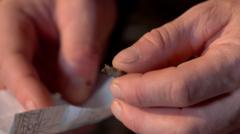How is Trump Changing US Policy on Cuba?

A Comprehensive Overview of the New U.S. Restrictions on Cuba Under President Trump
The recent memorandum signed by U.S. President Donald Trump signifies a significant shift in U.S.-Cuba relations, aiming to tighten restrictions that were previously eased under the Biden administration. This article delves into the details of the memorandum, its implications for both the United States and Cuba, and the broader context of U.S. foreign policy concerning the Caribbean nation. As we explore the ramifications of these changes, we will consider the perspectives of both the U.S. government and the Cuban people, as well as the historical backdrop that informs this ongoing relationship.
Understanding the New Memorandum
The memorandum signed by President Trump introduces stricter enforcement of existing policies regarding travel and economic interactions between the U.S. and Cuba. The White House has emphasized a commitment to counteracting what it views as practices that benefit the Cuban government, military, and intelligence agencies at the expense of the Cuban populace.
Key Elements of the Memorandum
- Stringent Enforcement of Travel Bans: The memorandum reinforces the ban on American tourists traveling to Cuba solely for tourism, reiterating that there are only 12 authorized categories of travel.
- Mandatory Compliance Audits: Regular audits and mandatory record-keeping of travel-related transactions for at least five years are now required, aiming to ensure adherence to the existing policies.
- Restrictions on Business with GAESA: U.S. citizens are prohibited from conducting business with GAESA, a military-run conglomerate that owns numerous hotels and other enterprises in Cuba.
- Opposition to International Calls for Relief: The U.S. will resist international calls to lift the economic embargo against Cuba, particularly from organizations like the United Nations.
The Rationale Behind the Changes
The Trump administration's stance towards Cuba is rooted in a broader goal of promoting democracy and human rights in the region. In the memorandum, the U.S. government expresses its commitment to alleviating the suffering of the Cuban people, which it attributes to the Communist regime. The administration argues that the new restrictions are necessary to limit the resources available to the Cuban government, thereby fostering a political environment conducive to democratic reforms.
The Historical Context of U.S.-Cuba Relations
To fully understand the implications of the new memorandum, it is essential to consider the historical context surrounding U.S.-Cuba relations. The relationship between the two nations has been tumultuous since the Cuban Revolution in 1959, which led to the establishment of a communist government under Fidel Castro.
The Embargo and Its Consequences
In 1960, the U.S. imposed an economic embargo on Cuba, which has been in place for over six decades. The embargo has severely restricted Cuba's access to goods, services, and financial assistance, contributing to economic hardships for the Cuban people. Over the years, various administrations have adjusted their policies towards Cuba, with some seeking engagement and others opting for stricter measures.
Shifts in Policy Under Different Administrations
The Obama administration notably took significant steps to normalize relations with Cuba, including lifting some travel restrictions and re-establishing diplomatic ties. However, the Trump administration has sought to reverse many of these measures, citing concerns over human rights abuses and the support of terrorism by the Cuban government. The reinstatement of Cuba's designation as a state sponsor of terrorism shortly after Trump’s inauguration exemplifies this shift.
Impact on Cuban Citizens and the Economy
The new restrictions imposed by the Trump administration are expected to have profound effects on the Cuban economy and its citizens. Tourism, a vital source of revenue for the Cuban government, has already been severely impacted by the pandemic and ongoing economic struggles. With the introduction of stricter travel regulations, the flow of American tourists—who contribute significantly to the local economy—is likely to dwindle further.
Challenges Faced by the Cuban Population
Cuban citizens face numerous challenges, including food shortages, power outages, and limited access to basic necessities. The government's inability to address these issues has fueled discontent among the populace. The new restrictions may exacerbate these conditions, as the economic blockade continues to restrict trade and foreign investment.
Reactions from Cuban Leadership
Cuban Foreign Minister Bruno Rodríguez has publicly condemned the memorandum, describing it as an aggravation of the existing economic blockade that punishes the Cuban people. This sentiment is echoed by many who see the embargo as a primary obstacle to Cuba's development and well-being.
Responses from the Cuban-American Community
The Cuban-American community in the United States has had a varied response to the Trump administration’s policies. While many Cuban-Americans support stricter measures against the Cuban government, there is also a significant portion that opposes the rollback of Temporary Protected Status (TPS) for Cuban refugees. This decision has drawn criticism and disappointment from those who believe it undermines the safety and security of vulnerable populations.
The Role of the Cuban-American Community
The Cuban-American community has historically played a crucial role in shaping U.S. policy towards Cuba. This demographic often advocates for a tougher stance against the Cuban government, driven by personal connections and historical grievances. However, the nuances within the community highlight a complex landscape of opinions, influenced by individual experiences and perspectives on human rights and economic opportunity in Cuba.
Future Prospects for U.S.-Cuba Relations
The future of U.S.-Cuba relations remains uncertain. With the Trump administration's firm stance against the Cuban government and a commitment to enforcing stricter policies, the potential for diplomatic engagement appears limited. However, changes in administration or shifts in public opinion could lead to renewed discussions about normalizing relations in the future.
Potential Areas for Dialogue
Despite the current tensions, there are areas where dialogue could be beneficial for both nations. Issues such as human rights, economic cooperation, and public health could serve as starting points for future discussions. The ongoing challenges posed by the COVID-19 pandemic underscore the need for collaboration on public health initiatives and economic recovery efforts.
Conclusion: Reflecting on the Path Forward
The memorandum signed by President Trump reflects a continuation of a long-standing policy of economic pressure on Cuba, driven by a desire to promote democratic governance and human rights. As the Cuban people face increasing hardships, the implications of these restrictions are profound and multifaceted. While the U.S. government seeks to curb the influence of the Cuban regime, the challenges faced by everyday Cubans remain a pressing concern.
As the situation evolves, it raises important questions about the effectiveness of sanctions and whether they truly serve to empower the Cuban people or simply reinforce the existing regime. The future of U.S.-Cuba relations will depend on the willingness of both governments to engage in constructive dialogue and the broader geopolitical landscape.
FAQs
What are the key changes in travel restrictions to Cuba?
The recent memorandum enforces existing bans on tourism and requires mandatory record-keeping for travel-related transactions, aimed at limiting U.S. citizens' interactions with the Cuban military and government.
How does the embargo affect the Cuban economy?
The U.S. embargo severely restricts Cuba's access to goods and services, contributing to economic hardships, food shortages, and limited access to basic necessities for the Cuban population.
What is the Cuban-American community's stance on these policies?
The Cuban-American community is divided; while many support stricter measures against the Cuban regime, others oppose the rollback of TPS, highlighting a complex landscape of opinions within this demographic.
The evolving dynamics of U.S.-Cuba relations continue to invite scrutiny and debate. As we consider the future, one must ask: How can both countries move towards a more constructive relationship that benefits the Cuban people? #Cuba #USRelations #CubanPolitics
Published: 2025-07-01 12:15:19 | Category: world



